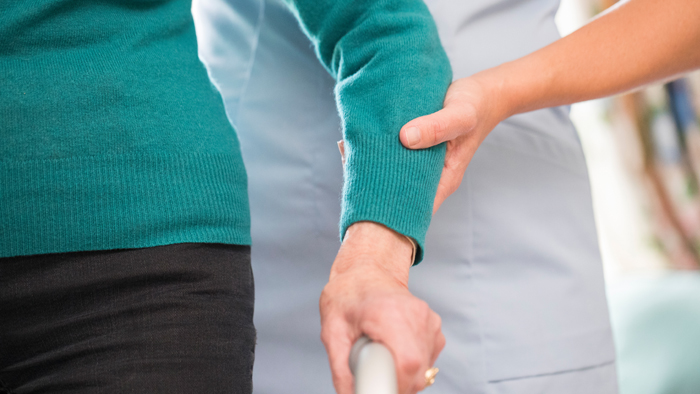
Occurring mostly in older people, frailty is characterized by an excessive vulnerability of an individual to internal and external stressors. Being frail generates a high risk of developing illness or other negative health-related events.
We know frailty.
We have friends and family members who are frail. We might even be considered frail ourselves. What does being frail mean to you? Is it thin and bent over elders who look like they might break in half with a swift wind? Do they sit back without participation, seemingly oblivious to their surroundings?
Being frail looks scary. Don’t we take more care when someone is frail? Aren’t we more patient, more helpful, more empathetic with a frail person?
Anyone can be considered frail, regardless of age. It happens when a person feels weak, when they have trouble standing without assistance or when they aren’t able to grasp or hold on to something. You’re considered frail when you feel exhausted and when everything takes a big effort or when you can’t get going the majority of the days of most weeks. Most frail people who consistently manifest the identifying characteristics signal a life winding down with a life expectancy of approximately 3.5 years. Once identified as being frail, can individuals come back to a stronger place to carry on with increased vigor? Absolutely, it just depends on the individual.
There are three main ways to keep strong and put off being frail or keep it at bay entirely, in most cases, and these ways are:
~stay active
~eat well
~keep your mind active and optimistic
It’s not ironic that these ways are the hallmarks for a richer elder life in general.
As we age, it is always best if we move our bodies most days, trade junk food for increased nutrition, and by being the optimistic person people want to be around. Frailty can still creep in, but doing these things increases your odds of strength and less vulnerability.


Thank you for another great writing Antonia– I especially like how you acknowledge that frailty can manifest itself in younger people as well. I feel a bit frail today myself and your words helped kick start me. For a timely reminder I made the mnemonic SEK out of your 3 main points for keeping strong. Wishing you a peaceful strong day ahead.
Cathleenxx
I love your catchy mnemonic, Cathleen. Thank you too for reminding us all that frailty can befall us all. Hopefully, we muster the needed efforts and energy to move ahead, stronger and undaunted. Take care, my friend.
Hi, A. I’m late responding to this, but it’s a great topic! There’s almost no worse feeling than feeling frail. I feel frail mentally as well as physically some times. I’m beginning to understand why elderly people shut themselves away, afraid to even attempt going to the store some times. And I don’t like understanding that because it means I can now see that as a possible reality, where a few years ago I couldn’t. I feel frail when the world seems too much; when I get tired after doing things I used to do all the time; when I can’t pick up and move something around. These feelings come and go but it’s important to acknowledge them, and then try to turn them around. I find myself giving myself pep talks more often. When you feel frail you just want to be safe. But being safe is not moving forward, and we need to always be moving forward. If we’re not moving forward, we think we’re staying where we are, but we are actually moving backward and that’s no life to lead.
I’m so glad you shared this information, Christine.
Exhaustion is a key component of frailty. Moving forward against a current of fear and tiredness is difficult at best. And for how long can we keep our trajectory going forward as we age and our worlds shrink? I know many elders join you in these concerns, including me. Thanks for this comment; better late than never, dear friend.